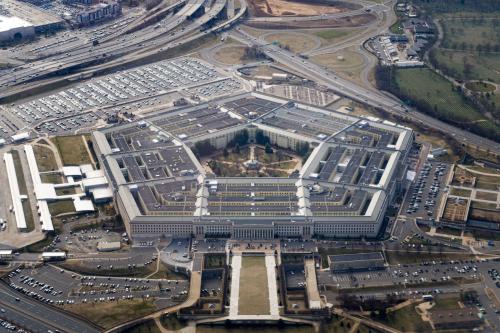

2:00 pm EDT - 3:30 pm EDT
Past Event
2:00 pm - 3:30 pm EDT
1779 Massachusetts Avenue, NW
Washington, DC
The war between Israel and Hamas in Gaza has lasted less than a month, but has already surpassed the 2008 war in physical destruction and human cost. While U.S. Secretary of State John Kerry works intensely to achieve an immediate cease-fire, both Israelis and Palestinians appear prepared for a protracted conflict, and regional players jockey for advantage. Many question whether the United States still has enough clout and influence to bring about a cease-fire, never mind a negotiated peace agreement that would resolve the tensions underlying this crisis.
On Tuesday, August 5, the Center for Middle East Policy at Brookings hosted a panel discussion examining the dynamics of the Israeli-Palestinian conflict, the U.S. handling of the crisis, and the regional implications and influences. Brookings Vice President for Foreign Policy and former U.S. Special Envoy to the Israeli-Palestinian Negotiations Martin Indyk shared his observations and insights. He was joined by fellows Natan Sachs and Khaled Elgindy, a former adviser to the Palestinian negotiating team. Tamara Wittes, director of Brookings’s Center of Middle East Policy, moderated the discussion.



Michael E. O’Hanlon
September 12, 2024

Ranj Alaaldin
February 2, 2024

Jeffrey Feltman, Kevin Huggard
November 17, 2023